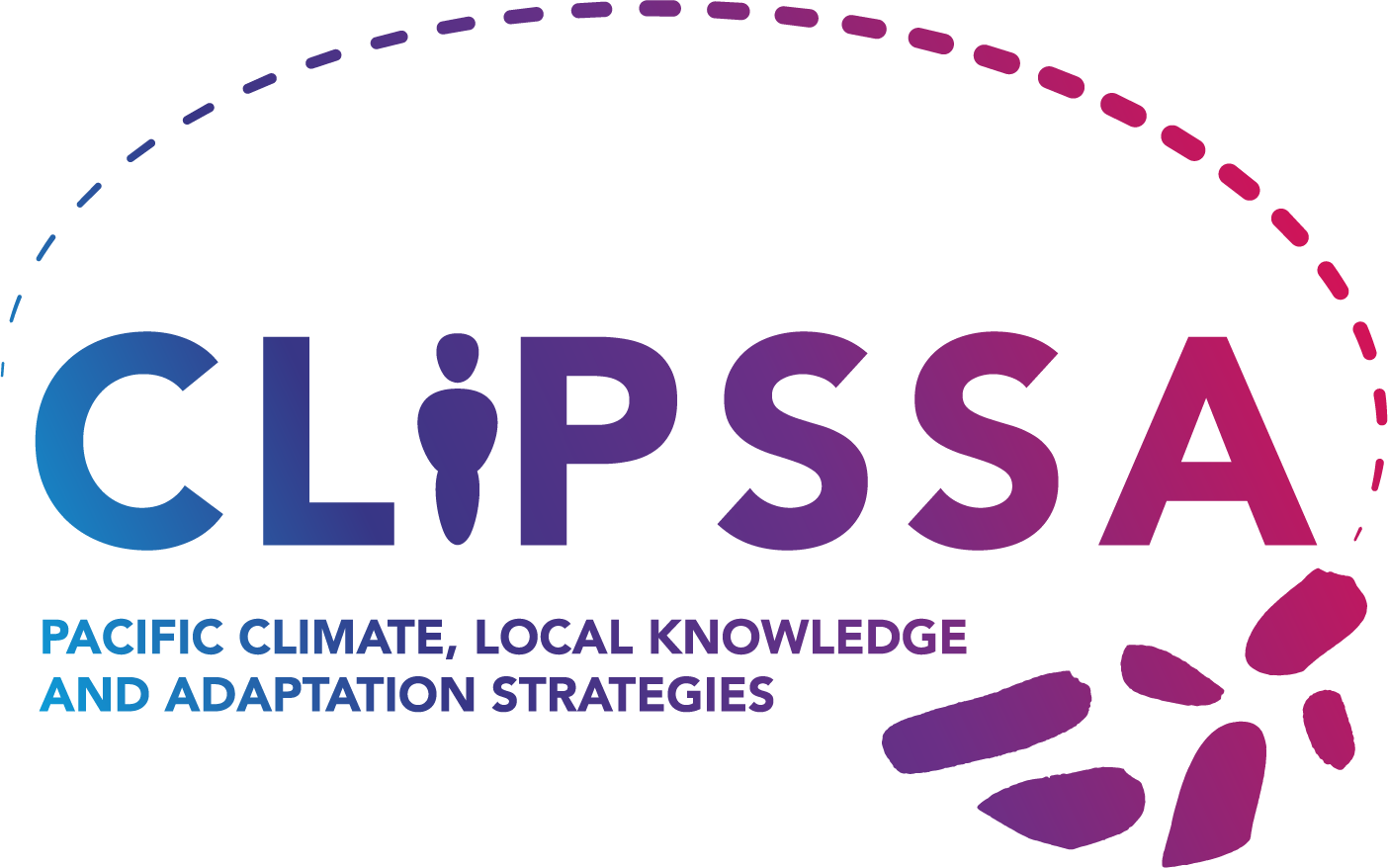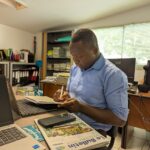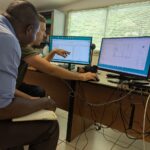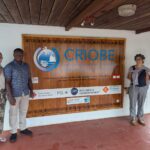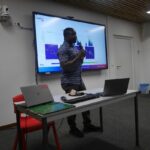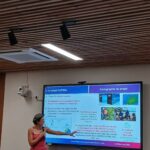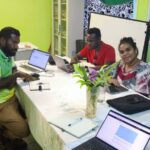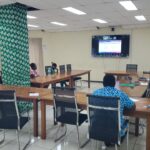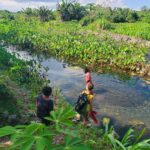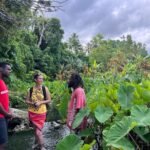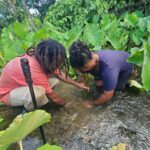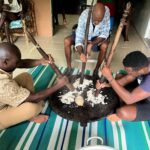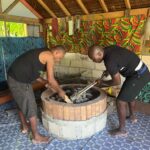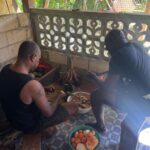As part of the “Pacific Climate, Local Knowledge and Adaptation Strategies” project (CLIPSSA), researchers in human and social sciences (HSS) have been deployed in the four countries and territories involved: New Caledonia, Wallis and Futuna, French Polynesia and Vanuatu. Their objective: to document and report on local agricultural knowledge and its evolving strategies for adapting to the challenges of climate change.
Key Figures
To date, the HSS teams have conducted several hundred interviews across the various study sites:
-
New Caledonia (La Foa, Canala and Maré): 89 farmers, 11 institutional and political stakeholders
-
Vanuatu (Espiritu Santo and Efate): 43 farmers, 12 institutional and political stakeholders
-
French Polynesia (Tahiti and Moorea): 57 farmers, 3 food processors, 36 institutional actors, 10 researchers
-
Wallis and Futuna (Futuna and Alo): 25 farmers, 10 institutional stakeholders
Three Months of Fieldwork in French Polynesia – First Half of 2025
From April to July 2025, postdoctoral modeller Dakéga RAGATOA (in charge of French Polynesia and Wallis and Futuna) and project engineer Fleur VALLET accompanied the HSS field team, composed of postdoctoral anthropologist Maya LECLERCQ and interns Chloé DELBOVE and Moeana PENLAE.
Institutional meetings and interim feedback
On the islands of Tahiti and Moorea, the researchers engaged in discussions with the Chamber of Agriculture and Lagoon Fishing (CAPL), the Department of Agriculture (DAG), the CRIOBE research center, the AgroDev and Pae Tai Pae Uta (PTPU) consultancies, the Opunohu agricultural high school, and the “Taro ITE” project team, supported by the KIWA Initiative.
- Dakega Ragatoa at the CAPL, French Polynesia, 2025/04, ©Fleur Vallet
- Dakega Ragatoa at the CAPL, French Polynesia, 2025/04, ©Fleur Vallet
- CLIPSSA team at the CRIOBE, French Polynesia, 2025/04, ©Fleur Vallet
- CLIPSSA team at Meteo-France interregional direction in FP, French Polynesia, 2025/04, ©Fleur Vallet
Public seminar at the University of French Polynesia
On April 22, a seminar at the Pacific Human Sciences Center (MSHP) enabled Maya and Dakéga to present the project’s methodology and early findings. This public restitution reflected the project’s commitment to science communication and local stakeholder engagement. The event brought together AFD Polynesia, NGO representatives, students, and researchers. A second presentation was held at Saint Joseph High School in Punaauia, where Dakéga introduced the APSIMX agroclimatic model, used to simulate future climate effects on Pacific crops, particularly tubers (yam, taro, cassava…).
Read more: From Local Knowledge to Simulation: An Integrated Approach to Anticipating Climate Impacts on Pacific Root Crops & seminar recording
- Seminar at UPF, French Polynesia, 2025/04, ©Maya Leclercq
- Seminar at UPF, French Polynesia, 2025/04, ©Jean Yves Meyer
Engaging with Local Stakeholders
Maya, the anthropologist in charge of coordinating fieldwork in French Polynesia, led the research alongside Catherine SABINOT, IRD anthropologist and CLIPSSA scientific coordinator. Field interviews with farmers were conducted by Chloé and Moeana, both completing their master’s internships within the CLIPSSA project—Chloé through the National Museum of Natural History in Paris, and Moeana through the University of French Polynesia. They spent several weeks with farming communities: Moeana in Moorea and Chloé on Tahiti’s peninsula, gaining insights into agricultural practices and climate adaptation strategies. Their findings complemented the results produced in 2024 by Maya and Marie-Amélie RICHEZ.
The mission concluded with several feedback workshops for the people involved in the study: future farmers enrolled in the BTSA program at Moorea Agricultural High School, farmers from Moorea, and those from the Tahiti Peninsula.
Read more: CLIPSSA Scientific Findings Presented at the Opunohu Agricultural High School, Moorea
Three Months of Fieldwork in Vanuatu – First Half of 2025
Meanwhile, Samson JEAN MARIE, PhD candidate in anthropology and geography, and Ida PALENE, intern from ISTOM, completed a total of six months of immersive fieldwork in Efate and Espiritu Santo. Catherine SABINOT joined them for two weeks. In April, postdoctoral modeller Gildas GUIDIGAN also joined the team for three weeks to familiarise himself with the field and meet institutional stakeholders managing agricultural data.
Institutional and Scientific Engagement
To ensure strong collaboration with local institutions, many meetings were organized.
In Efate, the team engaged with the Vanuatu Meteorology and Geohazards Department (VMGD), the Department of Agricultural and Rural Development (DARD), and representatives from the Van-KIRAP project (Vanuatu Klaemet Infomesen blong Redy, Adapt mo Protekt), aimed at strengthening the country’s resilience to climate change.
In Espiritu Santo, a working visit to the Vanuatu Agriculture Research and Training Center (VARTC) was coordinated by Marie Vianney MELTERAS, the center’s director of research and CLIPSSA focal point in Vanuatu.
- CLIPSSA team at Vanuatu Agricultural Department, 2025/04, ©Gildas Guidigan
- CLIPSSA team at VMGD, 2025/04, ©Gildas Guidigan
An Ethnography of Agricultural Knowledge
Samson and Ida shared the daily lives of rural farming communities in Santo and Efate over several weeks. In households, fields, markets, forest paths and rivers, they engaged with elders, youth, women and men, as well as institutional and customary actors. They chose an immersive, participatory approach based on observation, dialogue, and careful listening. Occasionally joined by Catherine during their stay, they used a variety of methods: semi-structured interviews (individual and group), participant observation, discussion workshops, and georeferenced mapping of fields and knowledge-sharing locations.
Farming Systems in Constant Adaptation
Their research revealed a wide array of adaptive strategies implemented by farming families: diversification of plots, crop rotation, preservation of traditional irrigation systems, farming in more remote areas…
While Samson’s work is part of his PhD research on local knowledge and adaptive capacities, Ida focused on the often-overlooked role of women, who play a central part in fieldwork, seed preservation, and knowledge transmission.
Back from the field, the two young researchers brought back more than just data—they also returned with a new language that they now harem save (understand) and toktok (speak): Bislama. A living testimony to their immersion and the relationships forged with the communities they encountered.
- CLIPSSA team in the field, Vanuatu, 2025/04, ©Samson Jean Marie
- CLIPSSA team in the field, Vanuatu, 2025/04, ©Ida Palene
- CLIPSSA team in the field, Vanuatu, 2025/04, ©Samson Jean Marie
CLIPSSA: Between Pitchfork, Furnace, and Climate Forecasts
Throughout their investigations, the researchers also immersed themselves in the processing and culinary uses of the food crops studied within CLIPSSA. From Vanuatu’s laplap to nalot, a traditional island meal, and through coconut milk preparation workshops in Taravao (French Polynesia), the teams engaged with the food cultures of their hosts.
These moments also echoed a broader issue at the heart of the CLIPSSA project: the food sovereignty of Pacific Island communities.
- Nalot cooking, Vanuatu, 2025/04, ©Ida Palene
- Bougna cooking, Vanuatu, 2025/04, ©Ida Palene
- Bougna cooking, Vanuatu, 2025/04, ©Ida Palene
Want to Learn More?
Stay tuned for upcoming articles featuring field reports from our human and social sciences interns.
